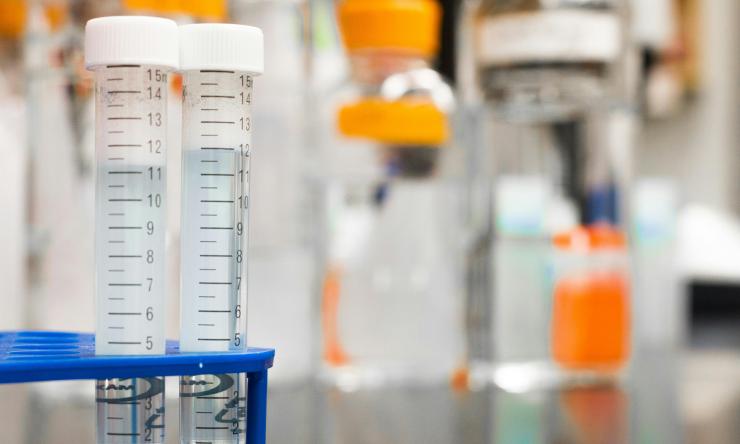CAR T cells armed with IL-15 show promise in treating solid cancers
A new study published in the journal Nature reports results of the first-in-human phase 1 clinical trials of a novel immunotherapy approach for solid tumors expressing glypican-3 (GPC3). Researchers at Baylor College of Medicine, Texas Children’s Cancer Center and the Center for Cell and Gene Therapy at Baylor, Houston Methodist Hospital and Texas Children's Hospital led the study, which tested chimeric antigen receptor (CAR) T cells enhanced with the protein interleukin-15 (IL-15).
CAR T cells have shown limited efficacy in patients with solid cancers, despite dramatic success in some hematologic malignancies. Preclinical studies showed that the addition of IL-15, which helps T cells survive and multiply, could improve the performance of CAR T cell-based immunotherapies.
In these trials, researchers tested GPC3-specific CAR T cells co-expressing IL-15 in adults with hepatocellular carcinoma (HCC) (NCT02905188 conducted at Houston Methodist) and children with GPC3 expressing solid tumors, including HCC (NCT02932956 conducted at Texas Children's). The first patient cohorts received GPC3-CAR T cells alone. The GPC3-CAR T cells were found to be safe, with peak cell expansion at two-weeks post-infusion; however, no objective antitumor responses were observed.
GPC3-CAR T cells armed with IL-15 were evaluated in the second patient cohorts that again included adults (NCT05103631 conducted at Houston Methodist) and children (NCT04377932 conducted at Texas Children's) with GPC3-expressing solid tumors. Patients enrolled in these trials had significantly increased CAR T cell expansion with 33% (4/12) of subjects demonstrating an objective-antitumor response and 66% (8/12) experiencing stable disease for a minimum of 4 weeks. Patients receiving the GPC3-CAR T cells armed with IL-15 had a higher incidence of cytokine release syndrome. Those symptoms were quickly resolved with activation of the inducible caspase 9 safety switch, a gene previously shown in labs at the Center for Cell and Gene Therapy, to reverse uncontrolled CAR T cell expansion.
“The findings are encouraging and a major step forward in enhancing the efficacy of CAR T cells for children and adults with solid tumors. The correlative studies from this trial have provided unique insights into the evolution of tumor infiltrating CAR T cells, providing a blueprint to design the next generation of more effective, less toxic cellular immunotherapies,” said corresponding author Dr. Andras Heczey, associate professor of pediatrics – hematology and oncology at Baylor and director of the Liver Tumor Program at Texas Children’s Cancer Center.
Other authors that contributed to this work include David Steffin, Nisha Ghatwai, Antonino Montalbano, Purva Rathi, Amy N. Courtney, Azlann B. Arnett, Julien Fleurence, Ramy Sweidan, Tao Wang, Huimin Zhang, Prakash Masand, John M. Maris, Daniel Martinez, Jennifer Pogoriler, Navin Varadarajan, Sachin G. Thakkar, Deborah Lyon, Natalia Lapteva, Mei Zhuyong, Kalyani Patel, Dolores Lopez-Terrada, Carlos A. Ramos, Premal Lulla, Tannaz Armaghany, Bambi J. Grilley, Stephen Gottschalk, Gianpietro Dotti, Leonid S. Metelitsa, Helen E. Heslop, Malcolm K. Brenner and Pavel Sumazin. They are affiliated with one or more of the following institutions: Baylor College of Medicine, Texas Children’s Cancer Center, Dan L Duncan Comprehensive Cancer Center, Center for Cell and Gene Therapy, Children’s Hospital of Philadelphia, Perelman School of Medicine at the University of Pennsylvania, University of Houston, St. Jude Children’s Research Hospital and Lineberger Comprehensive Cancer Center, University of North Carolina.
See the publication for a full list of funding for this work.










